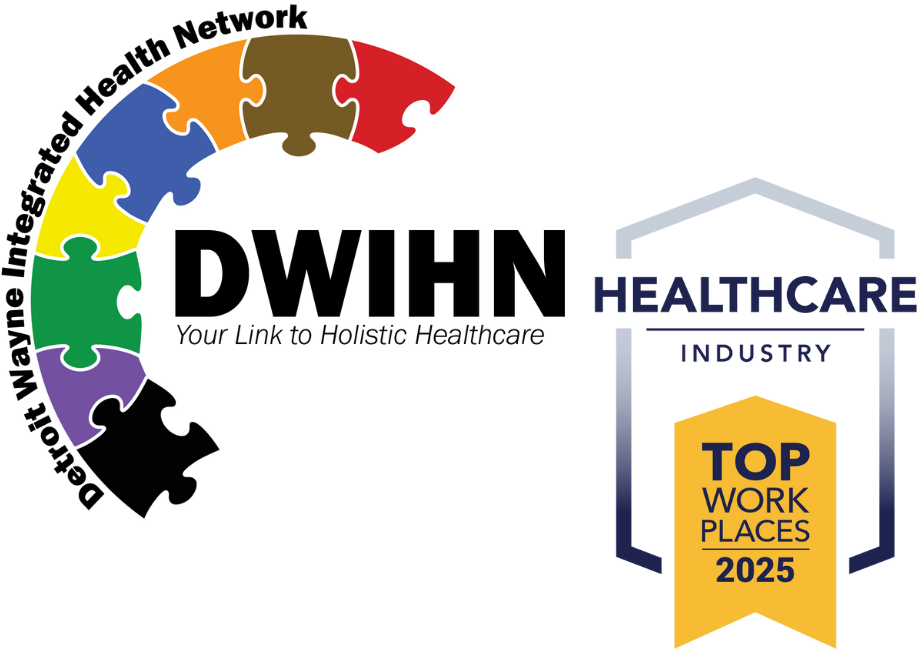Mission, Vision & Values
Mission
We are a healthcare safety net organization that provides access to a full array of integrated services that facilitate individuals to maximize their level of function and create opportunities for quality of life.
Vision
To be recognized as a national leader that improves the behavioral and physical health status of those we serve, through partnerships and direct service that provide programs promoting integrative holistic health and wellness.
Values
- We are an advocate, person-centered, family and community-focused organization.
- We are an innovative, outcome, data-driven, and evidence-based organization.
- We respect the dignity and diversity of individuals, providers, staff, and communities.
- We are inclusive, culturally sensitive and competent.
- We are fiscally responsible and accountable with the highest standards of integrity.
- We achieve our mission and vision through partnerships and collaboration
History
The Detroit Wayne Integrated Health Network (DWIHN), formerly known as the Detroit Wayne Mental Health Authority changed its name in 2019 to better reflect how it helps the people it serves. Prior to that, the Detroit Wayne County Community Mental Health Agency (Agency) was created pursuant to Michigan Law and the Michigan Mental Health Code. The Agency was established in October 1968 when the then Wayne County Board of Supervisors approved the joining of Wayne County (County) with the City of Detroit to create the Agency. The former Agency (now known as the Detroit Wayne Integrated Health Network is governed by a 12 member Board of Directors, with six directors nominated by the Mayor of the City of Detroit, and six directors nominated by the Wayne County Chief Executive Officer.
The President/CEO is hired by the Board of Directors and is responsible for implementing all the functions of a community mental health services program as mandated by the Michigan Mental Health Code.
DWIHN is responsible for managing specialty services for individuals with or at risk for serious emotional disturbance (SED), severe mental illness (SMI), intellectual and developmental disabilities (I/DD), substance use, and MIChild beneficiaries. DWIHN manages a full array of specialty mental and substance use services through contracts with our Provider Network.
Historically, the State of Michigan and DWIHN financed and managed mental health and substance use services through individual contracts with providers. Services were reimbursed through fee-for-service, net cost or grant contracts. Federal and State mandates for greater accountability, improved access to care, and a need for a flexible and innovative service delivery system prompted the Michigan Department of Community Health (MDCH) now called the Michigan Department of Health and Human Services (MDHHS) to apply for a waiver. MDCH was granted the wavier October 1998.
MDCH grandfathered all Community Mental Health Service Providers (CMHSP) from October 1998 through September 2002. Beginning October 1, 2001 all existing CMHSPs had to complete an Application for Participation (AFP) and satisfy to the State that it met the standards for delivery of services as a Specialty Prepaid Health Plan. The Authority completed that process and on August 27, 2002, was selected to continue as the prepaid health plan for the Detroit-Wayne County area.
The Michigan Mental Health Code, Public Act 258 of 1974 has been amended In December of 2012 by Public Acts 375 and 376 of 2012, to require that in order to qualify for state support, a county that has situated totally within it a city having a population of at least 500,000 must establish or administer a community mental health services program as a community mental health authority; and pursuant to the Code, the Wayne County Commission has held three public hearings in accordance with the Open Meetings Act, Public Act 267 of 1976, as amended; and WHEREAS, consistent with the Code, under the Authority form of organization the consumers will continue to have the same rights, privileges, and benefits with respect to services, board membership and due process they currently possess.
